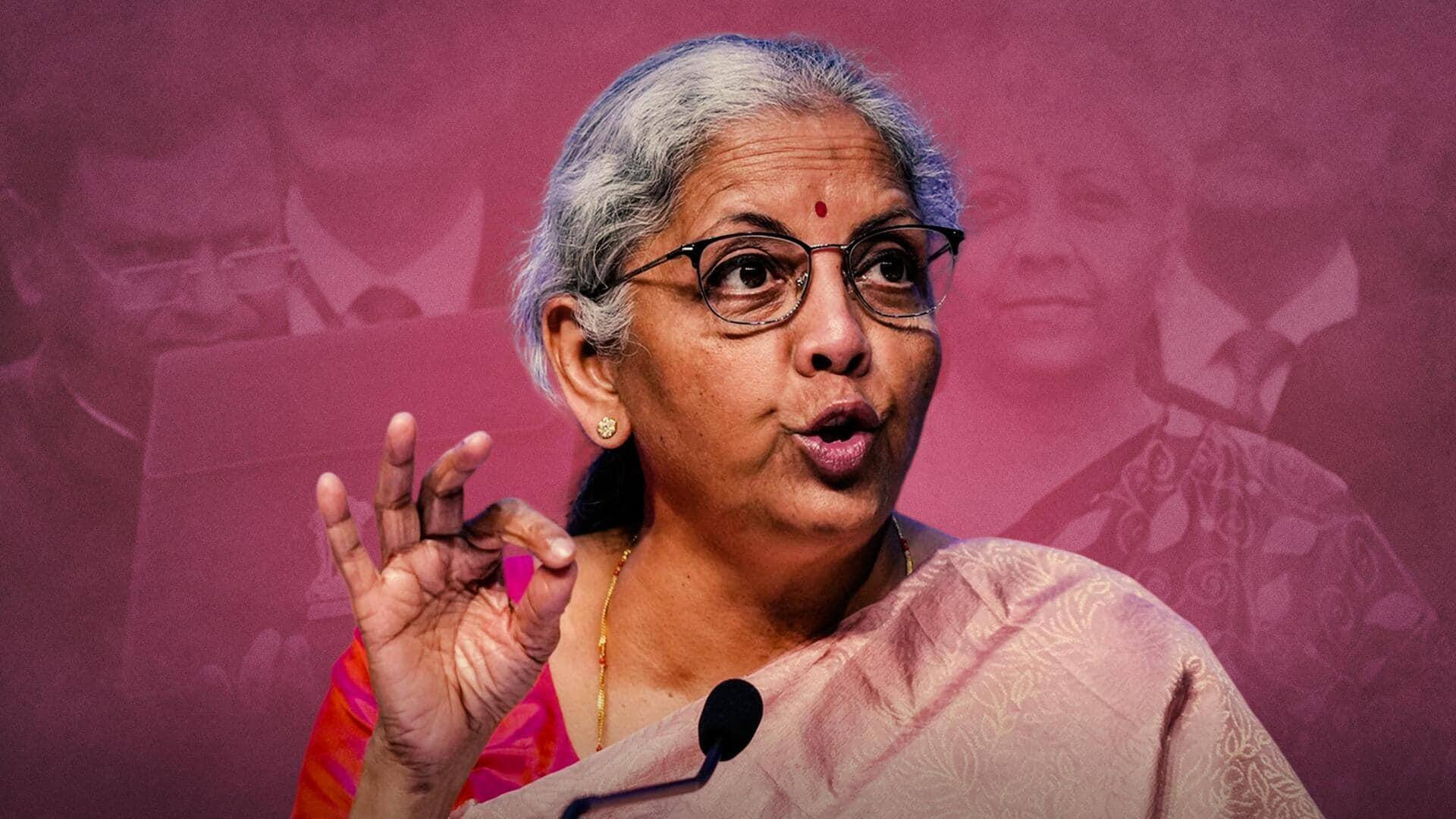
'Congress brazenly kept amending Constitution for Gandhi family, dynasty': Sitharaman
What's the story
Union Finance Minister Nirmala Sitharaman on Monday opened the Rajya Sabha debate on the 75th anniversary of India's Constitution.
She drew attention to India's uniqueness among over 50 countries that gained independence after World War II and have since altered their constitutions.
"But our Constitution has stood the test of time," she said and paid tribute to its 389 drafters, including 15 women.
Constitutional critique
Sitharaman criticizes Congress's constitutional amendments
Sitharaman also took a dig at the Congress and former Prime Minister Indira Gandhi, accusing them of amending the Constitution to protect those in power.
She also took a swipe at Jawaharlal Nehru, alleging he deplored press scrutiny despite publicly praising press freedom.
Sitharaman accused Nehru's interim government of introducing a constitutional amendment in 1950 to curb freedom of speech.
"These amendments were not to strengthen democracy but..the process was used to strengthen the family," she said.
Free speech
Sitharaman highlights Congress's history of curtailing free speech
To criticize Nehru's stand on freedom of speech, the minister mentioned the arrests of poet Majrooh Sultanpuri and actor Balraj Sahni.
She said Sultanpuri was jailed in 1949 for reciting a poem against Nehru, refusing to apologize. Balraj Sahni was also jailed for his revolutionary thinking in 1949.
"'Nehru', a political biography...written by Michael Edwards in 1975 was banned. They banned also a film called "Kissa Kursi Ka" just because it questioned Prime Minister Indira Gandhi and her son."
Dynasty politics
Sitharaman accuses Nehru's successors of benefiting family dynasty
Elaborating on the First Amendment of the Constitution of India in the 1950s, she said, "The Supreme Court in 1950 had ruled in favour of the Communist magazine "Cross Roads" and the RSS organizational magazine Organizer."
"But in response, the (then) interim government thought that there was a need for a first Constitutional amendment.. So India...saw the first interim government coming up with a Constitutional amendment which was to curb the freedom of speech of Indians," she added.